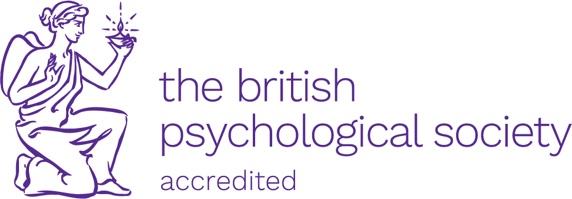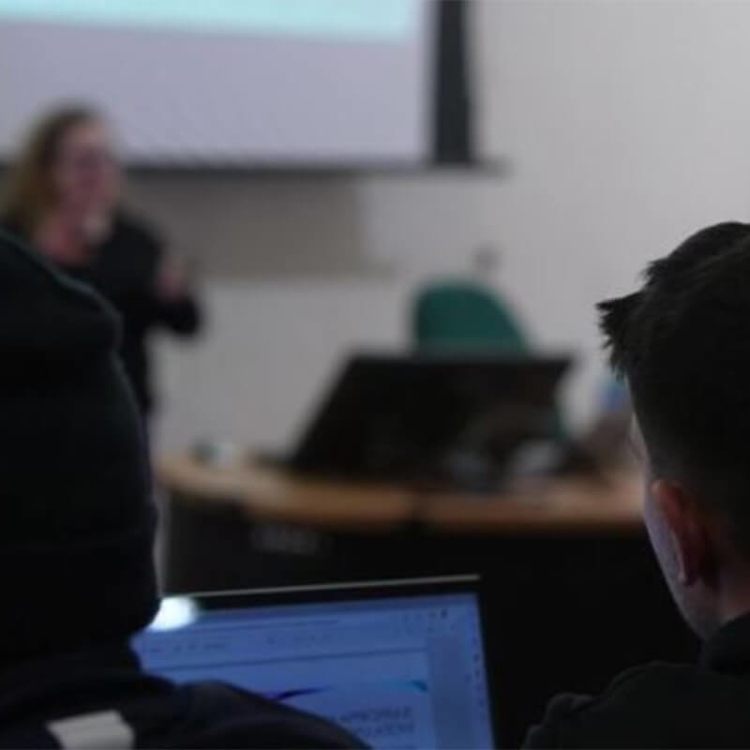Duration:
1 year (full-time)
2 years (part-time)
Number of credits:
180
Start date(s):
September 2026
January 2027
This BPS-accredited programme fulfils Stage 1 training towards becoming a Forensic Psychologist and offers a professionally grounded curriculum directly linked to real forensic practice.
You’ll gain the knowledge, skills and practical experience to assess, understand and respond to offending behaviour and mental health in real-world criminal justice settings, while developing hands-on expertise in report writing, forensic risk assessment, case formulation and mock trials.
By integrating theory, assessment and intervention, you’ll build reflective practice and develop the confidence to design training programmes, provide consultancy and progress to Stage 2 training or therapeutic work within forensic environments.
Our programme helps you build relevant professional skills by focusing on:
- Understanding why people offend
- Conducting forensic risk assessments
- Research and analysis
- Clear communication through professional reports and presentations
- Understanding the legal and ethical frameworks you will work within
- Reflective practice and learning from experience to grow as a professional
You’ll also gain experience with professional tools such as SPSS, NVivo and AI-supported platforms, ensuring you develop the digital capabilities required for modern forensic practice.
With a strong emphasis on employability, inclusivity and real-world relevance, this MSc prepares you for progression to Stage 2 training as a Forensic Psychologist or for professional roles across forensic, clinical and criminal justice settings. You’ll graduate not only academically prepared but professionally equipped with the practical expertise, ethical grounding and critical insight needed to make meaningful contributions across a wide range of forensic psychology careers.
Did you know?
On this programme, you’ll gain hands-on experience in forensic assessment, intervention planning and applied research through professional tools and case-based simulations that reflect real criminal justice practice. You’ll also strengthen your digital literacy, reflective skills and transferable professional competencies for careers in forensic psychology and related fields.
Accreditation
Following a recent review and enhancement, this programme has been carefully redesigned to continue meeting all BPS accreditation standards and is currently pending reaccreditation by the BPS.

Modules
This module will provide you with an advanced, integrated understanding of criminal behaviour theories, forensic risk assessment, and psychological interventions within forensic settings. It aims to equip you with specialised knowledge and practical skills that align with contemporary professional standards.
The module aims to aid you in your knowledge and development of the core skills considered fundamental for working within forensic psychology and forensic settings, namely forensic risk assessment and intervention.
This module explores the complex relationship between mental health and the criminal justice system. You’ll critically examine how psychological theories, research, and applied practice shape fair, ethical, and effective responses to offending behaviour. You’ll learn about key legal frameworks, including the Mental Health Act and the Mental Capacity Act, and explore how these apply in real-world contexts such as court proceedings, parole decisions, and multi-agency working.
This module provides a comprehensive foundation for those pursuing careers in forensic psychology, integrating both theoretical and practical components to equip you with the skills and competencies required for professional practice.
The module is structured to focus on the key forensic psychology roles, with an emphasis on ethical standards, psychological case formulation and interventions, research, and professional development. Lectures will provide you with the required teaching to understand the core skills and what is expected of professionals in the field. You will engage in workshops that foster the development of these core skills as well as reflective practice. Through this module, you will develop a deep understanding of the core principles of forensic psychology, gain professional skills, and prepare for a rewarding career in this vital field.
In this module, you will build a comprehensive foundation in both quantitative and qualitative research methods tailored to criminal and forensic psychology. You will develop advanced skills in research design, data collection, analysis, and interpretation, working with a variety of methodologies, including hypothesis testing, experimental design, survey research, interviews, and focus groups. Through weekly lectures and seminars, you will strengthen your critical analytical abilities, learning to use statistical software (e.g., SPSS) for quantitative analysis and applying qualitative approaches, like thematic analysis. Throughout the module, you will reflect on ethical considerations, reproducibility, and the evaluation of validity and reliability across both quantitative and qualitative methods. By engaging in hands-on exercises and applied projects, you will gain the practical experience needed to design, conduct, and analyse research, preparing you to critically apply a wide range of methods to criminal and forensic psychology topics and real-world contexts.
This module aims to help you develop advanced research and analytical skills by guiding you through the process of designing, conducting, and reporting an independent empirical research project in a forensic psychology context. It places strong emphasis on scientific rigour, ethical integrity, and methodological competence, equipping you with the skills needed for both academic and applied research roles.
Careers
The MSc Forensic Psychology prepares you for a wide range of professional pathways within forensic, criminal justice, and related settings. You’ll develop advanced knowledge, practical skills, and professional behaviours that equip you to work effectively in complex environments.
Graduates progress into roles such as:
- Assistant Psychologist or Intervention Facilitator
- Support Worker or Caseworker in youth offending teams
- Policy or Research Officer in government, academic, or third-sector organisations
- Positions within HM Prison and Probation Service or forensic mental health services
- Stage 2 training in Forensic Psychology or research-focused doctorates
The programme equips you to:
- Apply forensic psychological theory and research to real-world contexts
- Conduct independent, applied research with potential professional impact
- Communicate complex psychological concepts to diverse audiences
- Work ethically and inclusively, with cultural competence and digital literacy
With embedded career support, employability activities, and opportunities to learn from practising professionals, you’ll graduate ready to make a meaningful contribution in forensic psychology, criminal justice, and related fields.

Learning and Assessment
How you’ll learn:
The MSc Forensic Psychology combines rigorous academic study with practical, real-world learning to prepare you for professional practice. You’ll explore forensic psychological theory, research, and applied practice through interactive, student-centred teaching methods that develop critical thinking, reflection, and professional skills.
You’ll learn through a mix of approaches, including:
- Interactive lectures to introduce core concepts and theories
- Seminars, workshops, and case-based learning to apply knowledge to real-world scenarios
- Role plays, mock trials, and consultancy exercises to develop professional and assessment skills
- Group discussions and problem-solving activities to build collaboration and communication skills
- Applied research projects to develop methodological, analytical, and ethical competencies
This combination of interactive teaching, applied practice, and experiential learning ensures you gain the skills, confidence, and professional insight needed to succeed in forensic psychology and related careers.

How you’ll be assessed:
On this programme you’ll receive employ a varied and professionally focused assessment strategy designed to develop your knowledge, applied skills, and confidence. Assessments are scaffolded and supported with formative feedback to prepare you for summative tasks and build the competencies expected in forensic psychological practice.
You’ll complete a range of assessments, including risk assessment reports, case formulations, reflective accounts, literature reviews, oral presentations, and research reports. Many modules offer choice in topic or format, allowing you to tailor work to your strengths and interests. Clear marking criteria and detailed feedback guide your development and understanding of expectations.
Formative activities in seminars and workshops provide opportunities for guidance, discussion, and peer or tutor feedback, helping you refine skills and build confidence. Digital tools, including Moodle, Turnitin, and AI-supported platforms, enhance assessment literacy and support ethical, professional practice.
Your Empirical Research Project is supported through supervision and staged milestones, enabling you to design, conduct, and present applied research with methodological rigour and professional relevance.
This inclusive, varied, and feedback-rich approach ensures you can demonstrate your learning in multiple ways while developing the ethical, analytical, and practical skills needed for a career in forensic psychology.
Open days
Get a real taste of our campus, community and what it’s like to study at Roehampton
Applying
UK postgraduate students apply through our direct application system.
Specific entry requirements
Undergraduate degree in psychology with a minimum of second-class honours (2:2) or MSc Psychology (Conversion)
Eligible to hold a Graduate Basis for Chartership (GBC) with the BPS
General entry requirements
International postgraduate students apply through our direct application system.
Specific entry requirements
Undergraduate degree in psychology with a minimum of second-class honours (2:2) or MSc Psychology (Conversion)
Eligible to hold a Graduate Basis for Chartership (GBC) with the BPS
General entry requirements
Fees and funding
UK students
Tuition fees
| Entry date | MSc (full-time) | MSc (part-time) |
|---|---|---|
| September 2026 | £11,250 | £5,625 |
| January 2027 | £11,250 | £5,625 |
Prices shown are for the first year of your degree.
Additional fees to consider
Students may be required to apply for DBS through the university, if there are potential forensic work experience being offered.
Funding your studies
We also provide other ways to support the cost of living, including on-campus car parking, hardship support and some of the most affordable student accommodation and catering in London.
International students
Tuition fees
| Entry date | MSc (full-time) | MSc (part-time) |
|---|---|---|
| September 2026 | £18,980 | £9,490 |
| January 2027 | £18,980 | £9,490 |
Prices shown are for the first year of your degree.
Additional fees to consider
Students may be required to apply for DBS through the university, if there are potential forensic work experience being offered.
Funding your studies
We also provide other ways to support the cost of living, including on-campus car parking, hardship support and some of the most affordable student accommodation and catering in London.






